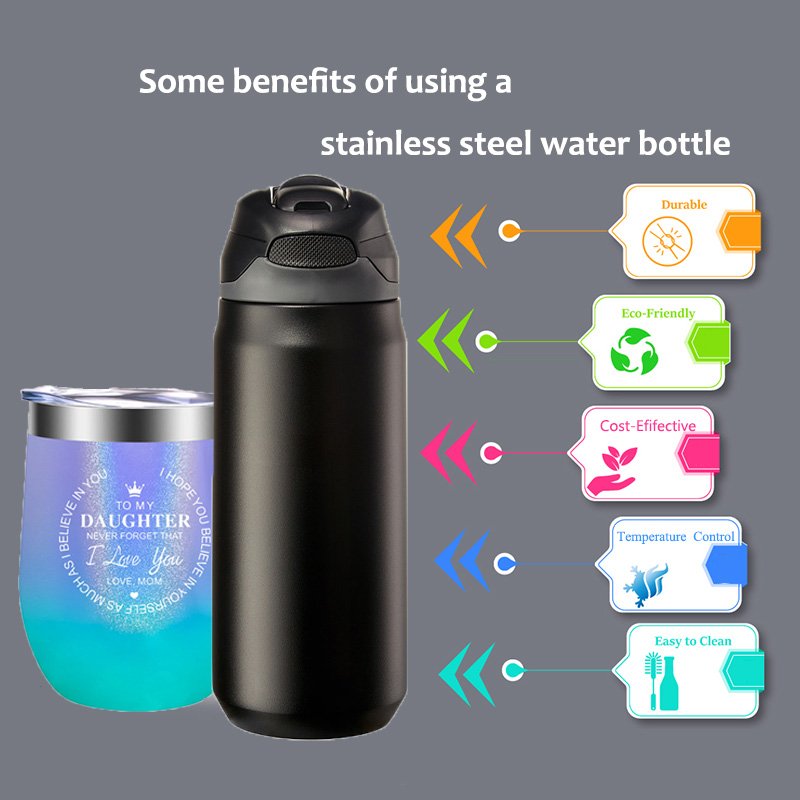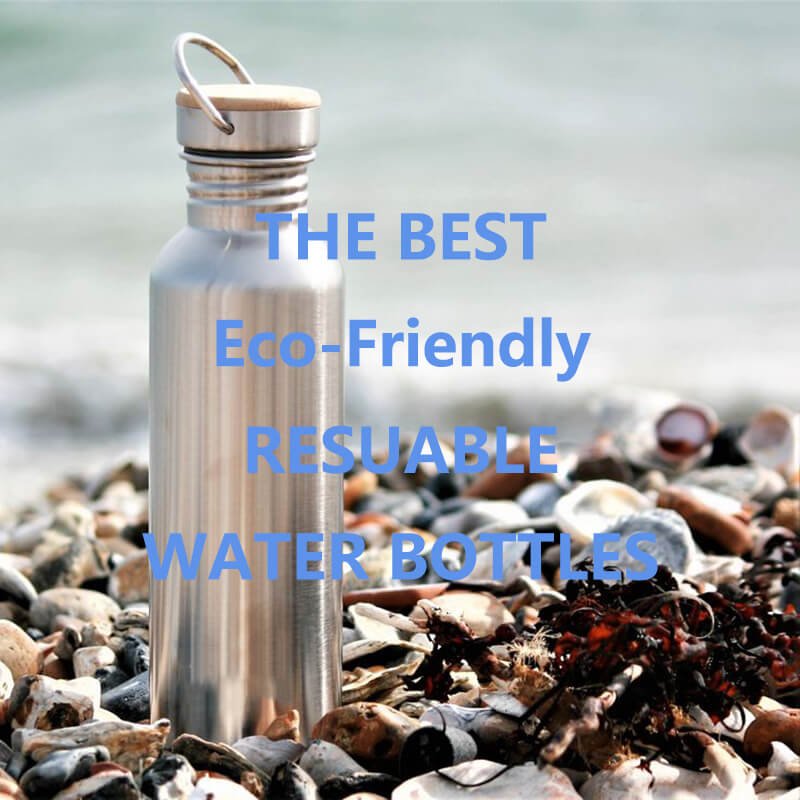Introduction to Wholesale Thermoses, Cups, and Bottles
Wholesale purchasing has become an increasingly popular strategy among businesses, organizations, and individuals looking to secure high-quality thermoses, cups, and bottles at competitive prices. By opting for wholesale orders, buyers can benefit from significant cost savings while ensuring a consistent supply of essential drinkware products. This method not only enhances inventory management but also provides an opportunity to acquire items suited to specific needs or preferences.
One of the primary advantages of purchasing directly from manufacturers is the reduced pricing associated with bulk orders. Manufacturers often offer lower unit costs for large quantities, which can yield substantial savings for resellers or organizations that require drinkware for events or promotional purposes. By eliminating intermediaries, buyers can obtain products at more favorable rates, allowing for better budgeting and enhancing profit margins.
Additionally, wholesale purchasing opens the door for customization options that are not typically available through retail channels. Buyers can request personalized designs, logos, or packaging that reflect their brand identity, thereby creating a unique product that resonates with their audience. This level of customization can significantly improve brand recognition and consumer engagement.
Furthermore, establishing a direct relationship with manufacturers can lead to long-term benefits. Consistent communication and collaboration may foster partnerships that ensure priority service, access to new products, and the ability to negotiate favorable terms for future purchases. This relationship-building aspect of wholesale buying supports sustained growth and adaptability within changing market conditions.
In summary, the transition towards wholesale thermoses, cups, and bottles is an advantageous approach that offers economic and strategic benefits. Understanding these dynamics can empower buyers to make informed decisions that enhance their purchasing power while meeting their specific needs in the drinkware market.
Benefits of Buying Directly from Manufacturers
Purchasing wholesale thermoses, cups, and bottles directly from manufacturers presents numerous benefits for businesses seeking to optimize their procurement processes. One significant advantage is the potential for substantial cost savings. By eliminating middlemen and intermediaries, businesses can secure lower prices since the manufacturer does not have to mark up costs as retailers typically do. This direct relationship allows for more competitive pricing, ultimately benefiting the buyer’s bottom line.
Another critical aspect of direct sourcing is the assurance of product quality. When dealing with manufacturers, buyers can often engage directly with the production process, gaining insights into materials used and quality control measures implemented. This transparency fosters trust and allows buyers to ensure that the thermoses, cups, and bottles meet their specifications and standards, which may not always be possible when purchasing from third-party retailers.
Additionally, sourcing directly from manufacturers may grant access to exclusive products or designs that are not available through retail channels. This exclusivity can provide a competitive edge, allowing businesses to offer unique thermoses and bottles to their customers, thereby enhancing brand differentiation in a crowded market. Furthermore, manufacturers typically possess the flexibility to accommodate custom orders, tailoring products to specific requirements or preferences.
In terms of logistics, direct purchasing can lead to improved supply chain efficiency. Manufacturers often offer more favorable lead times and better negotiation terms for bulk orders. This flexibility enables businesses to maintain adequate inventory levels without excessive overhead costs. Consequently, direct sourcing not only streamlines operations but also allows for greater alignment with market demands, ensuring that businesses can respond swiftly to changes in consumer preferences.
Choosing the Right Products for Your Needs
When considering a bulk purchase of thermoses, cups, and bottles, it is essential to evaluate several critical factors to ensure that the selected products align with your specific requirements. One of the most significant aspects is the type of material, as it can significantly influence durability, insulation, and overall user experience. Common materials include stainless steel, which is known for its sturdiness and excellent thermal properties; plastic, which offers lightweight convenience; and glass, providing a premium look but with higher breakability. Each material has unique advantages that may cater to different applications.
Size and capacity are also vital considerations when selecting products for bulk orders. Depending on the intended use—be it for promotional giveaways, corporate gifts, or day-to-day customer interaction—the requirements may vary. For instance, smaller cups may be ideal for individual servings or corporate branding, while larger thermoses would suit outdoor events or travel needs. Carefully analyzing your target audience’s preferences can guide your decision-making in this area.
Thermal insulation properties play a crucial role in ensuring that beverages maintain their desired temperature. Look for products with double-walled construction or vacuum insulation to provide enhanced performance. This feature is particularly important for thermoses intended to keep hot beverages warm or cold drinks chilled for extended periods. Understanding the insulation ratings and testing methodologies can give you insights into expected product performance.
Furthermore, explore customization options such as branded logos or colors, which can greatly enhance product appeal for promotional initiatives. It is advisable to assess the quality of the products by requesting samples or reading customer reviews, ensuring that functionality and design meet your expectations. Evaluating these factors thoroughly will aid in selecting the right thermoses, cups, and bottles that not only meet your needs but also offer value for your investment.
Navigating the Bulk Ordering Process
When engaging in bulk ordering of thermoses, cups, and bottles, a systematic approach is essential to ensure a successful procurement experience. The first step involves conducting thorough research to identify reputable manufacturers. Utilize online directories, trade associations, and customer reviews to compile a list of potential suppliers. Verify their credibility by checking their business licenses, certifications, and overall standing in the industry.
Once you have narrowed down your options, it is crucial to request samples of the products. This allows you to assess the quality, design, and functionality of the thermoses, cups, and bottles you intend to order. Manufacturers often provide samples at a nominal cost, which is an invaluable investment in ensuring that the final products meet your expectations. Evaluate these samples critically to determine if any modifications or specific features should be discussed prior to placing a bulk order.
Negotiating pricing is a significant component of the bulk ordering process. Engage potential suppliers in discussions about pricing structures while considering factors such as order size and frequency. Keep in mind that many manufacturers offer discounted rates for larger orders. Understanding the terms and conditions is equally vital; you should clarify minimum order quantities, shipping fees, and expected delivery timelines to avoid any unexpected costs or delays.
Effective communication with manufacturers plays a pivotal role in ensuring all requirements are met. Outline your needs clearly and maintain an open dialogue throughout the process. Moreover, assess how these bulk orders will affect your inventory management and planning. It is advisable to project your sales and consider storage capabilities to accommodate the volume of items being ordered. Careful planning in this regard will streamline operations and improve overall efficiency.




Secure Account Sales Marketplace for Ready-Made Accounts
account store accounts for sale
account market https://accountsmarketdiscount.com
sell accounts account market
buy accounts account market
website for buying accounts marketplace for ready-made accounts
accounts market https://social-accounts-marketplaces.live
account trading platform https://social-accounts-marketplace.live
buy a facebook ad account buy ad account facebook
facebook ad account for sale https://buy-ad-account.click
facebook accounts for sale https://buy-accounts.click
google ads account seller sell-ads-account.click
buy bm facebook https://buy-business-manager-acc.org/
buy facebook business account verified-business-manager-for-sale.org
buy tiktok business account https://buy-tiktok-ads-accounts.org
Tại game 66b , người chơi có thể lựa chọn nhiều phương thức thanh toán khác nhau như: thẻ ngân hàng nội địa, ví điện tử, và các cổng thanh toán quốc tế. Điều này giúp dễ dàng lựa chọn phương thức phù hợp với nhu cầu cá nhân mà không gặp khó khăn trong quá trình giao dịch. TONY12-19
Hier können Sie die erwähnten exklusiven, maßgeschneiderten Spiele ausprobieren, wie Bullcasino Auto Mega Roulette, Bullcasino One Blackjack oder Speed Blackjack
für rasanten Spaß. Mit über 4.000 Spielen von Top-Anbietern wie Hub88, Pragmatic Play, Novomatic, Hacksaw, Nolimit City, Netent, Evolution Gaming, Red
Tiger, Endorphina, Spinomenal, Wazdan und Yolted
gibt es so viel zu spielen. Es werden über 4.000 Spiele angeboten, von Spielautomaten und Tischspielen bis hin zu Live-Casino-Optionen.
100% bis zu 500€ + 150 Freispiele Bull Casino ist eine ausgesprochen seriöse Spielothek von Deep Dive Tech B.V., die mit einer guten Auswahl an Casino Spielen und
fairen Gewinnquoten überzeugen kann. Die Anzahl der Freispiele hängt von deinem Einzahlungsbetrag ab und wird kumulativ zusammengerechnet.
Je höher der Einzahlungsbetrag ist, desto mehr Freispiele werden ausgezahlt.
Der Kundendienst ist jederzeit per Live Chat oder Email erreichbar und spricht unter
anderem Deutsch und Englisch. Das Spiele-Angebot ist vergleichbar mit den Spielotheken von Fortuna N.V., kommt aber nicht an die massive Auswahl der Rabidi NV Casinos heran.
Zusätzlich empfiehlt der Anbieter die Nutzung von Filtersoftware wie
Net Nanny oder Cyber Patrol, um den Zugang zu
Glücksspielseiten für Kinder und Jugendliche zu blockieren Auch den Jugendschutz nimmt das Bull
Casino ernst und stellt durch eine Altersüberprüfung sicher, dass Minderjährige keinen Zugang erhalten. Mit einem
Klick kannst du dein Spielerkonto für 1 Monat, 3 Monate, 6 Monate oder eine unbegrenzte Zeit auf Eis legen.
In deinem Spielerkonto hast du die Möglichkeit tägliche, wöchentliche und monatliche Einzahlungs-,
Verlust- und Wettlimits einzurichten.
References:
https://online-spielhallen.de/1red-casino-bewertung-meine-10-jahre-erfahrung-auf-den-prufstand-gestellt/
Diese Plattform wurde geschaffen, um all unsere Bemühungen einer breiten Öffentlichkeit zu präsentieren, damit unsere Vision einer sichereren und transparenteren Online-Glücksspielbranche auch in die Realität umgesetzt wird.
Diese Initiative haben wir mt dem Ziel gestartet, ein globales
Selbstausschlusssystem zu schaffen, das es gefährdeten Spielern ermöglicht, ihren Zugang zu allen Online-Glücksspielmöglichkeiten global zu sperren. Deshalb habe ich mir die Zeit genommen,
die Folgen unfairen Verhaltens richtig zu erklären. Ich
meine, ein Casino, das einen Bonus anbietet und Sie den nicht sehen lässt Fortschritte in irgendeiner Weise..
Die mobile Plattform bietet alle Features der Desktop-Version.
Zusätzlich bietet das Casino E-Mail-Support an, wobei
Anfragen an oder gesendet werden können. Der Erster Einzahlungsbonus von Da Vinci’S Gold Casino bietet deutschen Spielern einen unglaublichen Start.
Der Da Vinci’S Gold Casino Willkommensbonus bietet im Vergleich zu anderen Casinos eine unkomplizierte und attraktive Möglichkeit, das Spielerlebnis zu starten.
Insbesondere im Bereich der beliebtesten Tischspiele werden nämlich in vielen anderen Internet Casinos wesentlich mehr Varianten angeboten. Mit dabei sind sowohl Slots als auch Online Casino Tischspiele, Videopoker
und verschiedene Sofortgewinnspiele. Der Glücksspielbetreiber zählte zu den ersten Online Casinos, bei
denen sich die Spiele der Software-Schmiede Rival Gaming finden lassen. Es gibt verschiedene Boni wie den Ersteinzahlungsbonus, den Willkommensbonus und den Cashback-Bonus.
References:
https://online-spielhallen.de/lapalingo-casino-cashback-ihr-weg-zu-mehr-spielguthaben/
New accounts receive our generous welcome package instantly, allowing you to start playing with bonus funds right away.
Our streamlined registration process takes less than 2 minutes, getting you from download to gameplay with minimal delay.
It has been specially optimized for smartphones with various performance levels to guarantee
a smooth gaming experience without interruptions.
The minimum deposit is just $30 AUD, making it accessible for all budgets.
With over 2,000 titles from 60+ top providers, Rocketplay Casino has
something for everyone. The first deposit doubles with a 100% match, while the second gives an even bigger boost with
a 200% match.
References:
https://blackcoin.co/crypto-casino-roostake-com/
Known for his ties to organized crime, Agnello’s life story is a tapestry
woven with ambition, power struggles, and the complexities of life on the edge of legality.
“Happy birthday to the strongest woman in the 🌎 you devoted your life to raising all of us the right way. I love you mom,” Frank wrote.
He often shares photos of them and his wife on his Instagram, but doesn’t share many other details
about his personal life. She explained that, while in a business meeting with executives who proposed the idea
to the three siblings, John stood up and said,
“I think I can speak for my brothers …
As of right now, these are the only two carriers available to create a Facebook Marketplace shipping label, and probably the best way to go for most sellers. You’ll notice there will be a different price for each respective prepaid shipping label. To use a USPS or UPS prepaid shipping label, select the shipping carrier of your choice from the dropdown. Your delivery method can include your own shipping method or prepaid shipping labels. To set up the shipping option on your FB Marketplace listing, you may need to include your shipping information and bank account. Let’s take a brief look at four tips you should consider when selling on the Facebook Marketplace…
References:
https://blackcoin.co/play-your-way-only-at-ac8-casino/
The AI startup will work with governments to assist with
increasing data center capacity and customizing OpenAI’s products to meet specific
language and local needs. It will help organizations in Asia meet their local data sovereignty
requirements when using OpenAI’s products. The new program will be accessible to users of ChatGPT Enterprise,
ChatGPT Edu, and API. The connector will soon be available for ChatGPT Plus,
Pro, and Team users, with support for Enterprise
and Education coming shortly, per an OpenAI spokesperson.
The ChatGPT deep research feature is in beta and lets developers connect with GitHub
to ask questions about codebases and engineering documents.
OpenAI has launched a new feature for ChatGPT deep research to analyze code repositories on GitHub.
According to TechCrunch, it is a service based on o3 that combines advanced reasoning and web search capabilities to make comprehensive reports within 5 to 30 minutes.
At launch, OpenAI included more than 3 million GPTs created by GPT Builder
users in the GPT Store. However, no machine translation services match human expert
performance. In February 2023, OpenAI launched a premium service, ChatGPT Plus, that costs
US$20 per month. It has an additional feature called “agentic mode” that allows it to take online actions for the user.
In September 2025, OpenAI added a feature called Pulse, which generates a
daily analysis of a user’s chats and connected apps such as Gmail and Google Calendar.
References:
https://blackcoin.co/basic-draw-poker-rule/
casino con paypal
References:
imcufideteq.gob.mx
online betting with paypal winnersbet
References:
hyojun.co.kr
mobile casino paypal
References:
https://www.jobs2teens.com/companies/online-casino-paypal-online-gokken-met-paypal/
paypal online casinos
References:
https://www.fatims.org/employer/our-favorite-paypal-casinos-2025-ranking-update/
paypal casinos online that accept
References:
https://glimpsonworld.com/employer/477/in-depth-reviews-bonuses
casino mit paypal einzahlung
References:
http://best114.net/bbs/board.php?bo_table=free&wr_id=407